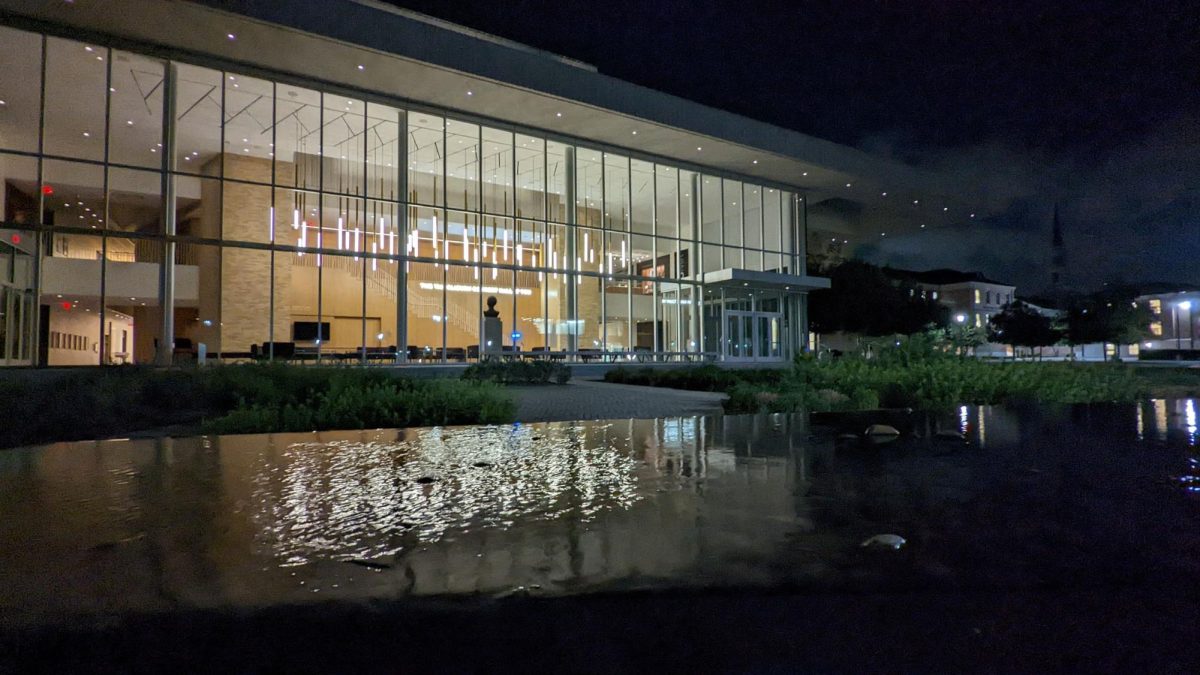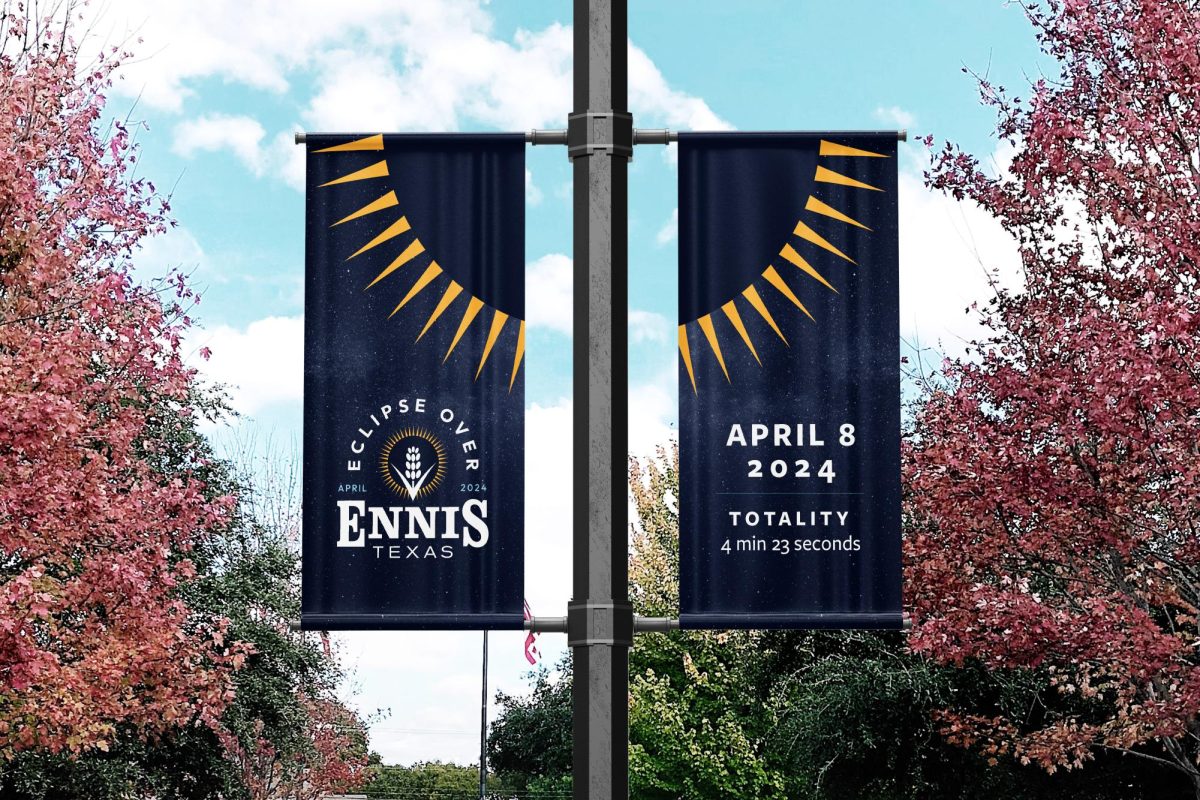Two years ago, Lanny Lancarte was running a restaurant typical of the most popular cuisine in the city: Mexican. Now, his upscale, fine dining restaurant, Lanny’s Alta Cocina Mexicana, is closed, and he has opened a different restaurant he hopes will be a lasting trend in Fort Worth: healthy eating.
“I knew there was a component in our market here for that,” Lancarte said. “When I made the switch over to opening Righteous Foods, I was looking to see customers at a place they could go on a daily basis, as opposed to just birthdays, anniversaries and special occasions. We’re an eat-every-day kind of option, something you can eat on a daily basis where you don’t feel sluggish; you feel energized.”
Cowtown goes blue
Lancarte isn’t the only one in Fort Worth focusing on making health a priority.
The Blue Zones Project, initiated in 2014 by Mayor Betsy Price, the Fort Worth Chamber of Commerce and Texas Health Resources, plays a major role in the city becoming more health-conscious. The Blue Zones Project’s goal is to make it easy for Fort Worth residents to adapt and stick to healthy lifestyles.
Part of the initiative helps restaurants in offering smarter choices on menus. Fort Worth has several Blue Zones-certified restaurants, where each must adhere to certain requirements, such as only providing bread to customers when requested and not offering free soda refills.
In order to be a designated Blue Zones-approved restaurant, owners must complete a pledge and commit to certain health practices in accordance with the initiative. Some of the requirements include specific plate sizes and fruit being offered for dessert.
Lancarte’s Righteous Foods, located on West 7th Street, is one of the several Blue Zones-certified restaurants in Fort Worth.
“When Blue Zones approached us, we didn’t have to change anything on our menu—we were already doing everything,” Lancarte said. “I think for more restaurants for certification, they have to create a new menu. We just said, ‘Here’s our menu, we’re doing the same thing,’ and that was the mission of the restaurant since day one.”
“One of the benefits of being associated with Blue Zones is the awareness,” he added. “It certainly is a positive thing that they’re doing.”

Prior to the project’s implementation in the city, Price said there was a concern from the Blue Zones people that Fort Worth may have been too big for the project, as the other cities throughout the nation who participate are much smaller: Albert Lea, Minnesota; the Beach Cities in California; Dodge County, Wisconsin and Southwest Florida.
States that are involved in the project are Hawaii, Iowa and Oregon.
However, Price said that after the Blue Zones officials visited Fort Worth for three weeks, they decided the city was able and ready for the health-conscious initiative.
Currently, the city is working to become a Blue Zones community. To reach that goal, the initiative will have to reach a specific number of work sites, schools, grocery stores, restaurants and community policies.
For Fort Worth to be a Blue Zones community on the restaurant side of the project, at least 25 percent of restaurants in the city must take the Blue Zones Project Restaurant Pledge and become certified Blue Zones restaurants.
“Restaurants are joining because they feel like it’s the right thing to do, and it makes them more attractive and sets them apart than just the average restaurant,” Price said.
Blue Zones-certified restaurants receive stickers for their windows and must offer Blue Zones-approved food items on menus.

Price said the project is extremely beneficial for the community.
“It’s great for our city; it improves our quality of life and makes us a richer, more vibrant and engaged community.”
“I think it’s very attractive,” Price added. “I have other mayors call me about it.”
Fort Worth Chamber of Commerce president and CEO Bill Thornton said that Fort Worth’s part in the Blue Zones Project can help set the city apart from other communities across the country.
“We’re promoting healthier choices, choices that can lead to longer lives and fewer diseases, and impact the livability of this community,” Thornton said. “We’re the largest city to undertake Blue Zones and to attempt to be a designated Blue Zones approved city.”
Price said she thinks Fort Worth residents are beginning to take a look at eating better when dining outside the home. She also said that since the Blue Zones Project was put forth, the city has been seeing more health-oriented businesses either open or move locally.

According to Price, health and economic development go hand-in-hand.
“Businesses are looking for communities with healthier populations because it cuts their health insurance expenses and makes their workers more productive when they’re there; when they’re sick, they’re not at work,” Price said. “Same thing with children–when children are not healthy, they’re not in school and then their parents are forced to be out, and all of that impacts our work force.
“The average person’s cost of their health insurance is about 19 percent of their income,” she said. “When people are healthier, they spend less on medical care and put more back into the economy, too.”
Not a walk in the park
Throughout industries, success is among the most challenging to reach in the restaurant business.
While opening a restaurant with conventional, non-organic menu items is tough — CNBC reported only 60 percent survive the first year; 80 percent close before the fifth anniversary — opening a health-conscious restaurant may be even tougher.
Locally and organically-grown produce is more expensive than non-organic produce, especially when compared to cheaper, conventional menu items seen at fast food restaurants.
Additionally, to be considered “healthy,” some health-oriented restaurants and businesses must adhere to non-GMO certifications as well as fair trade and organic federal certifications.
Also, most health-oriented restaurants’ menu items are pesticide-free and preservative-free. Shelf life on these items is not very long, requiring restaurant owners to re-stock and purchase ingredients and products more frequently than non-health-oriented restaurants in order to ensure freshness for customers.
The healthy food industry is extremely competitive, and both Lancarte and Juice Junkies founder and owner Hillary Biediger acknowledge hurdles they face while running their businesses.
“It’s a lot of hard work — the cost of goods are very expensive because we use organic produce,” Biediger said. “Organic produce may be one price one week, and the next week it can jump up $6 because that’s what the market may be doing that week.”
“I think we price our juices fairly, but because it is organic, our cost on this is so expensive. We get hundreds of pounds every day of produce, then you have to account for the labor and the biodegradable packaging we use,” she added.
Biediger said she understands that while some people may be frustrated at a $10 juice, the juice bar could be charging a lot more for what it’s providing.
“Go to Central Market and buy pounds of produce, and then go home and juice it and see how much it costs you, as well as the labor that’s involved,” she said. “It’s so unfortunate that produce in general is so much more expensive than junk food. We really could be charging a lot more, and we’re trying to be as fairest to everyone as possible. We’re kind of doing a service to others as well, and we want this to be available for folks who really need it.”

Lancarte agreed that it is pricey to use organic products.
“When we first opened, about 80 percent of our menu was organic,” Lancarte said. “The people who understand organic products get it, but the masses who are more price conscious don’t get it, so we’ve kind of maintained our health strategy, but we don’t use as many organics as when we first opened.”
“It’s just not feasible, and I tried really hard for about a year using organic chicken, and we were paying what others pay for beef tenderloin for our chicken breast,” he added. “It’s hard to do that and get those kinds of prices unless you’re just doing really high volume, and we have a pretty small place.”
Lancarte said the lack of organic farming in Texas also affects prices.
“There’s more organic farming on all of the West Coast, farming that’s been going on for a lot longer and the climate is just totally different, so it’s easier for them to get organic products at a better price than it is for us here,” he said. “When it’s closer to you, it’s cheaper; it’s different when you pay three to four times as much for an organic tomato or chicken. We don’t have a long growing season here and the amount of organic farms doesn’t even compare to the West Coast.”
The United States Department of Agriculture defines USDA certified organic foods as having been “grown and processed according to federal guidelines addressing, among many factors, soil quality, animal raising practices, pest and weed control and use of additives.”
The USDA’s Agricultural Marketing Service said there were 305 organic farms in Texas in 2014. California leads the nation in organic production with 2,805 organic farms in 2014, more than nine times Texas’ amount.
The health-conscious restaurant market is tough for people to get into, according to the Righteous Foods founder.
“It’s changing now, but 20 years ago, people moved and ate differently here, and I think to break the habits of people expecting large portions for small prices is a hard habit to break; it’s just been the norm here,” Lancarte said. “If you talk about the greater part of the dining community, people expect a lot of food for not a lot of money, and that’s just what’s been available in our market for the last 20 years.”
Supply, meet demand
Despite the challenges of opening and operating a restaurant that puts health as the main priority for its customers, health-oriented restaurant owners in Fort Worth say the demand for healthy eating is certainly present in the city, and the market is open and sustainable for such restaurants and businesses to thrive.
Lancarte knew Fort Worth was ready for his health-conscious restaurant due to the fact there was a lack of options in the market for clean, healthy eating in the area.
“I wanted to provide something so everyone could have an option to eat this way,” Lancarte said.
“I think a lot of restaurants have been saying they’re healthy or clean and I think that’s just a marketing strategy, rather than the ingredients they’re using,” he added.
On the restaurant’s website, the tab reads: “Fort Worth’s Healthiest Restaurant.”

The need for convenient, health-conscious restaurants in the area is growing.
“I think most people here feel that way – that the options out there aren’t healthy and the portions are large, and I know that I’m certainly not the only person that eats healthy,” Lancarte said. “We’re never going to compete with the big box, low prices places; that’s not our market. We give people an option that’s a change from that.”

Biediger had no doubt her juice bar, Juice Junkies, would be successful before she opened for business on Foch Street in November 2013.
Juice Junkies opened with a bang. The store was packed with customers on the first day. Biediger credits the busy lines and customer turn out rate to social media promotion, but also because Fort Worth didn’t have anything like the business beforehand.
“The movement had already started toward healthy, clean eating, and I think people were already in touch with that and wanted that,” Biediger said. “I knew people were really wanting something here other than a Whataburger, so we thought, ‘What could we do that’s having people come in and grab something healthy and go?’ There’s really nothing else like it in Fort Worth.”
Biediger was certain that her vegan, organic, dairy-free, gluten-free, juice bar — which also sells food, but zero meat options, could survive in Cowtown — an area known for its burgers, meat, Tex-Mex and barbecue — once she started researching.
The juice aficionado asked Dallas juice bar owners of their progress, to which she learned of their immense success in the business.

“I started asking a bunch of people I knew if this was something that would interest them,” Biediger said. “They said they’d kill to have a juice bar here.”
According to Biediger, Juice Junkies had around 1,500 to 2,000 Facebook followers before the store’s official opening.
She said she realized on her first day in business that she was going to have to hire more staff.
Biediger learned how people around the country were wanting and needing healthier options.
“More people started being gluten intolerant; more people were trending toward plant-based diets,” she said. “We get a lot of customers who are not well, so it’s really helping the way I wanted it to and really helping the people out there who have this kind of diet, ready for them and ready to go.”
Like Righteous Foods, Juice Junkies is also a Blue Zones-certified restaurant.
Biediger said that customers like seeing the Blue Zones plaque in her juice bar.
“Some people will look at it and ask what it’s about, so it’s a good chance to explain to them what it is and how it’s helping Fort Worth,” Biediger said. “I think the project is helping restaurants alter their portion sizes. The more restaurants that come aboard, the better it will be.
“I think it makes people really excited when restaurants start offering healthier options, for sure,” she added.
Regulars
Both Juice Junkies and Righteous Foods have seen success, which is evident through their customers.
Biediger said some customers frequent the juice bar two to three times each day, going in for breakfast, lunch and then again, right before it closes shop at 6:30 p.m.
“I could name at least 10 regulars I see more than once a day. They’ll come in and have our organic fair trade coffee and chit-chat with the employees — they just like it here,” Biediger said. “You can see them walking from their car and you know what they’re going to get. So we have a lot of those, and it’s really nice because you know you’re doing something right.”
She said she hears positive feedback from customers regularly.
“I hear customers say ‘I’m so happy you’re here; you’ve changed my life,’ or ‘I’ve been sick, so now I have a place I can come in and get the things I need,’” she said. “Just hearing stories how people were really needing something like this in Fort Worth and we’re here for them, that almost brings a tear to my eye.”

Biediger’s Juice Junkies location in Fort Worth was so successful, she opened another location in Keller almost exactly a year after the first one opened.
She said she is proof that health-conscious businesses can survive in Fort Worth and the surrounding area.
“The Keller location is doing really well; it’s growing and growing,” she said. “We’re very particular about food quality, cleanliness and we pay close attention to detail.
“I absolutely think if someone else opened a juice bar here, they’d survive,” Biediger added. “People are really, really wanting it.”
Righteous Foods has regulars, too.
Lancarte said some customers eat three meals a day at his restaurant. Others go for solely breakfast as often as five to six days a week.
The positive feedback for the restaurant stems from “the way we do things,” Lancarte said.
“I think we get a lot of compliments from people for the way we prepare things with healthy fats and oils and lean meats, grains and vegetables,” he said. “I think the people that eat here the most appreciate our approach and philosophy.”

Healthy eating
Rachael Gooch is a vegan who says it’s not difficult to find vegetarian and vegan options around Fort Worth.
“There are a lot of vegan options around Fort Worth; my favorite is Spiral Diner,” Gooch said. “It’s easy to find stuff here, you just have to do your research.”
Gooch said she chose to go vegan due to the way it makes her feel.
“I am full of energy, and I just feel better internally,” Gooch said.
Eve Pearson, wellness expert and founder of Nutriworks, a nationally recognized sports nutrition practice in the Dallas/Fort Worth area, said people are looking to eat better partly due to health issues.
“In general in the U.S., we’re a pretty sick population,” Pearson said. “There’s a lot of chronic disease and a lot of people on medications for health issues that can be reversed through diet and exercise, so I think people are seeking alternatives to better their health this way, instead of taking pills for the rest of their life.”
Anne VanBeber, professor and department chair of Nutritional Sciences in TCU’s College of Science and Engineering, said one doesn’t have to be a vegan or a vegetarian to eat or be healthy.
VanBeber emphasized the importance of eating lean meats and protein.
“Cold-water fish like halibut or anchovies, and even trout to an extent all have omega-3 fatty acids, which are health promoting and they help fight diseases and inflammation,” she said. “Also, even seafood like shrimp and lobster are very low-fat and good protein.”
The nutrition expert offered advice for choosing to eat smart while eating out in Fort Worth. She said it’s easy to choose healthy options at even the most unhealthy of places.
“We have to be more mindful, which means thinking more about what we eat and how we’re eating it,” VanBeber said. “If you go to a steak place, share a steak with somebody, or get the smallest steak. Also, some of the healthiest options are at places like Vietnamese and Thai restaurants.
“We eat a lot of Tex-Mex here, so to be healthy, you could get grilled chicken or shrimp, so less of the cheesy, saucy Tex-Mex stuff,” she added. “We have to cut back on our portions and that’s huge. We can eat healthy everywhere.”
Pearson said there are options for people looking to eat leaner outside of the home while on a budget.
“One thing I like to do that most people should be doing anyway and is way cheaper is going to the sides section on the menu, and try to put together a meal with a few sides, because it’s smaller and you’re putting together a healthy option,” Pearson said. “Another trick to eating out and saving money is, for example, let’s say they have shrimp ceviche as an appetizer, one can order that as their meal and get a vegetable side. It’s really inexpensive to do that, so staying in the appetizer and sides sections works out really well and is very inexpensive.”
Price said she believes eating healthy won’t be just a trend in Fort Worth, but that instead, it’s here to stay.
“Blue Zones is a long-term project,” Price said. “As a whole, lots of people are working to change the culture of the country.”
Lancarte agreed — it’s no trend. He said people will always be looking for something that benefits the way they feel and operate everyday.
“I think everyone will always want to have a healthy place to eat.”

Dawn Alexandrea Berry gave the keynote address about the Korean War's legacy on the search for missing service members in the annual Lance Cpl. Benjamin W. Schmidt Symposium.
Published Apr 21, 2024
Published Apr 21, 2024
Published Apr 21, 2024
Published Apr 20, 2024
Published Apr 19, 2024
Fort Worth community focusing on health
By Monica Dziak
Published Oct 30, 2016
QUICK LINKS
ABOUT TCU
FOLLOW US
TCU 360 is the official, student-produced product of the Department of Journalism in the Bob Schieffer College of Communication at Texas Christian University.
Our mission is to develop aspiring journalists who use accurate and ethical reporting to inform and serve people invested in TCU.
All Horned Frogs are welcome.
Copyright ©2024 TCU Student Media. All rights reserved.
Our mission is to develop aspiring journalists who use accurate and ethical reporting to inform and serve people invested in TCU.
All Horned Frogs are welcome.
Copyright ©2024 TCU Student Media. All rights reserved.




